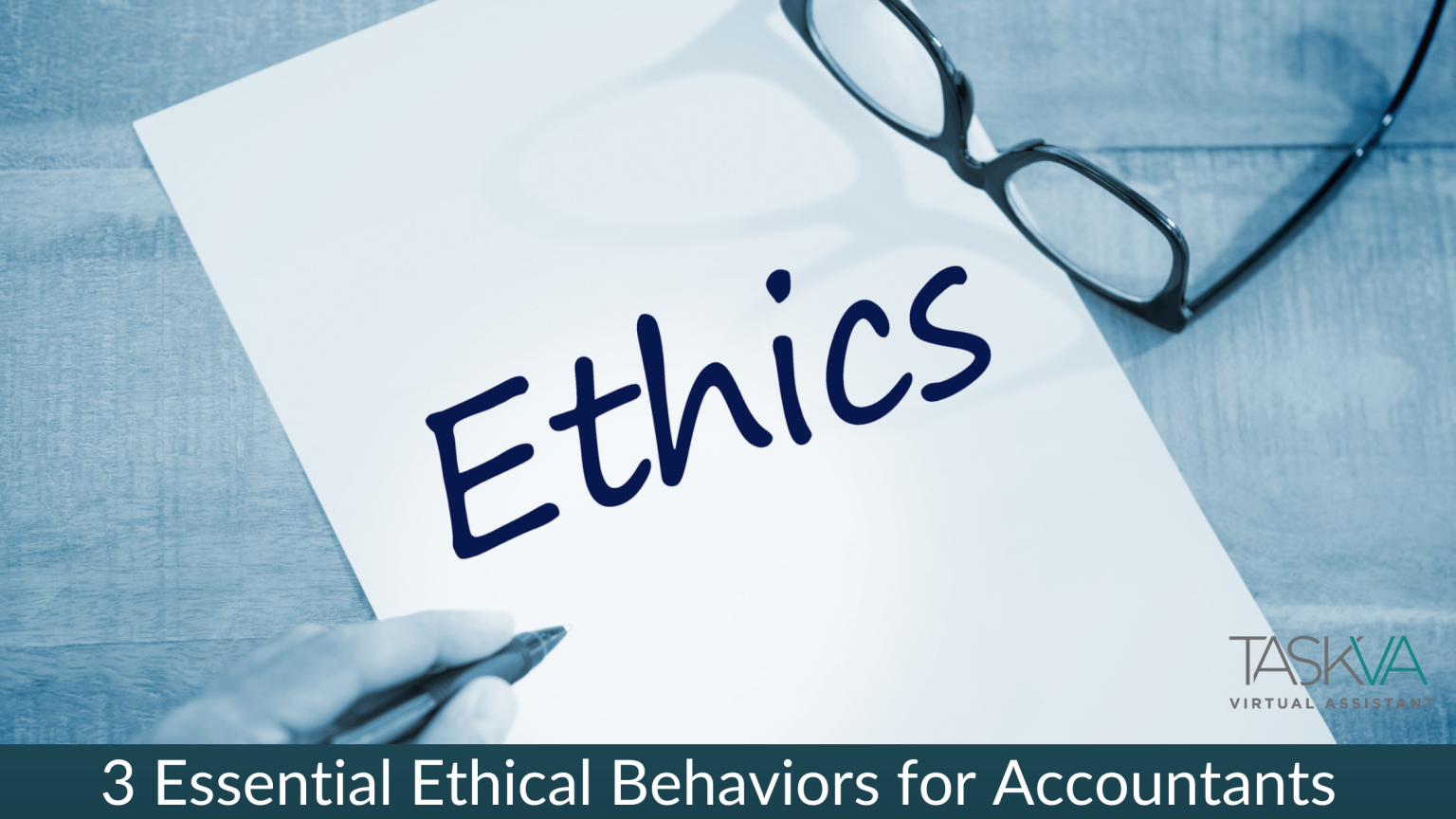
3 Essential Ethical Behaviors for Accountants

As an accountant, it's crucial to maintain a high level of ethical behavior. After all, you're dealing with sensitive financial information, and your clients rely on you to keep that information confidential.
One of the most important ethical principles for accountants is integrity, meaning honesty and transparency in all your dealings and not engaging in deceptive or misleading behavior.
As an accountant, it is your responsibility to ensure that financial reports accurately reflect your client's financial situation. Therefore, presenting financial information accurately and completely without intentional or unintentional misrepresentations is vital.
Another critical ethical principle for accountants is objectivity. You must remain impartial and avoid any conflicts of interest. For example, having a personal and financial relationship with a client could create a conflict of interest that compromises your objectivity. In such cases, it's essential to disclose the conflict of interest to your client and take steps to manage it appropriately. Do not let personal or financial relationships influence your work; always remain objective when advising your clients.
Confidentiality is also essential for accountants. You must keep all client information confidential and not disclose it to anyone without the client's express permission. This includes not sharing information with colleagues, friends, or family members.
Similarly, if you encounter a situation where you suspect fraud or other illegal activities, it is not only essential to report it promptly to the appropriate authorities; it is your legal obligation. Failure to do so could compromise your ethical responsibilities and expose you to legal liability.
As an accountant, you must always comply with the law and regulations. Therefore, you should keep up-to-date with any changes in legislation and ensure that your clients follow all the necessary rules and regulations.
It's worth noting that ethical dilemmas in accounting can sometimes be complex and challenging to navigate. In such cases, seeking guidance from a professional organization, such as the American Institute of Certified Public Accountants (AICPA), can be helpful.
Lastly, remember that ethics extend beyond your office walls. As an accountant, you represent the accounting profession, and your behavior can have a broader impact on its reputation. So, behave ethically at work and in your personal life.
Just remember, ethics are a critical component of being an accountant, and maintaining a high level of ethical behavior ensures that you build trust with your clients and uphold the integrity of the accounting profession.
